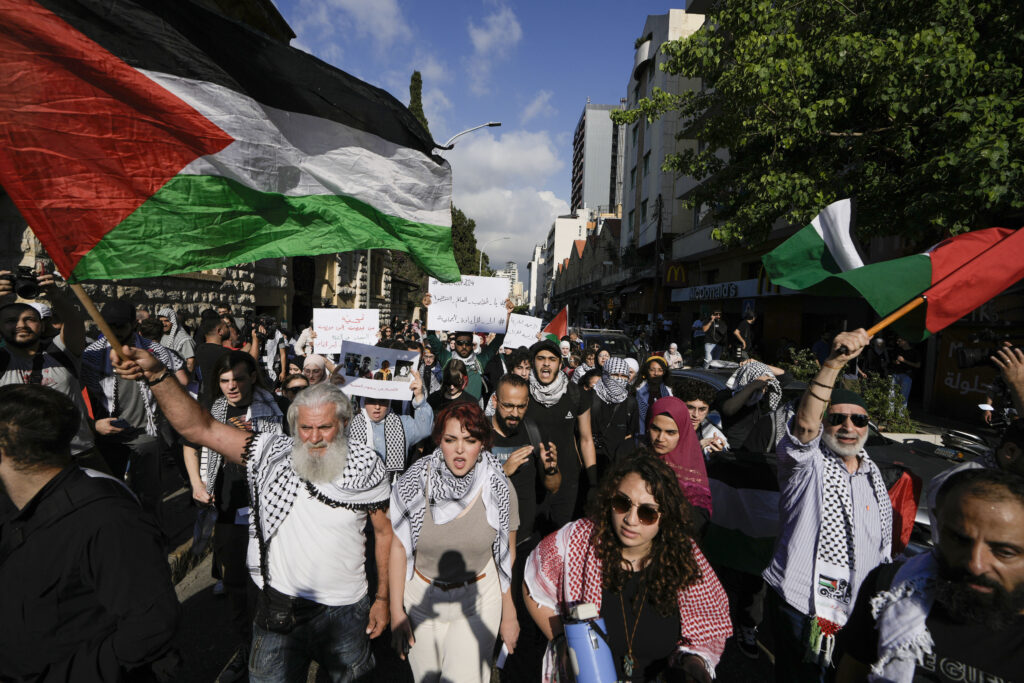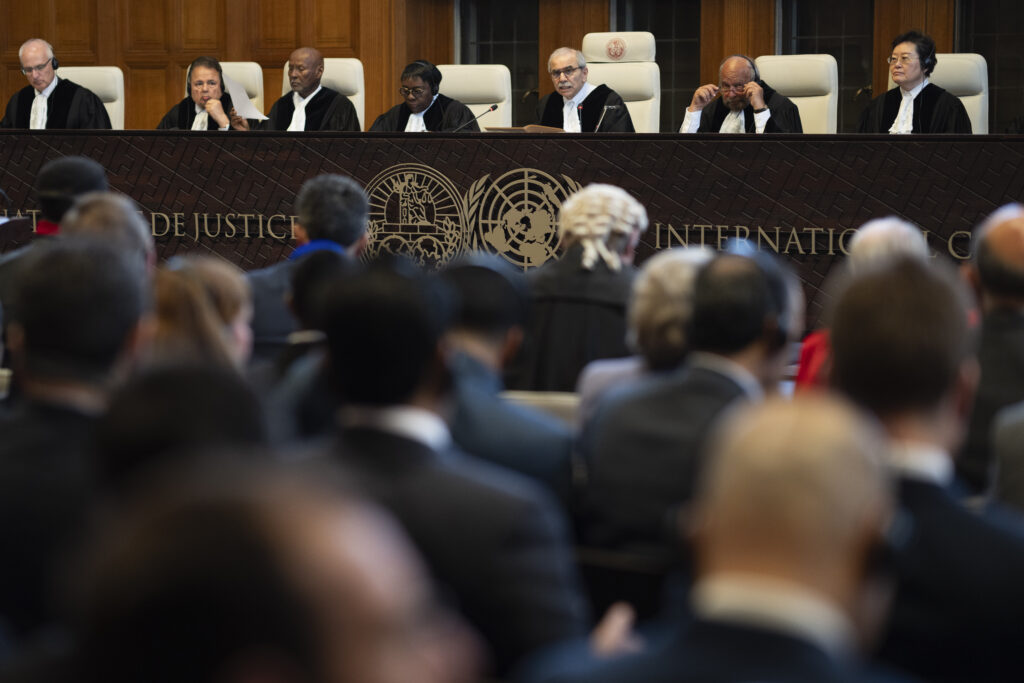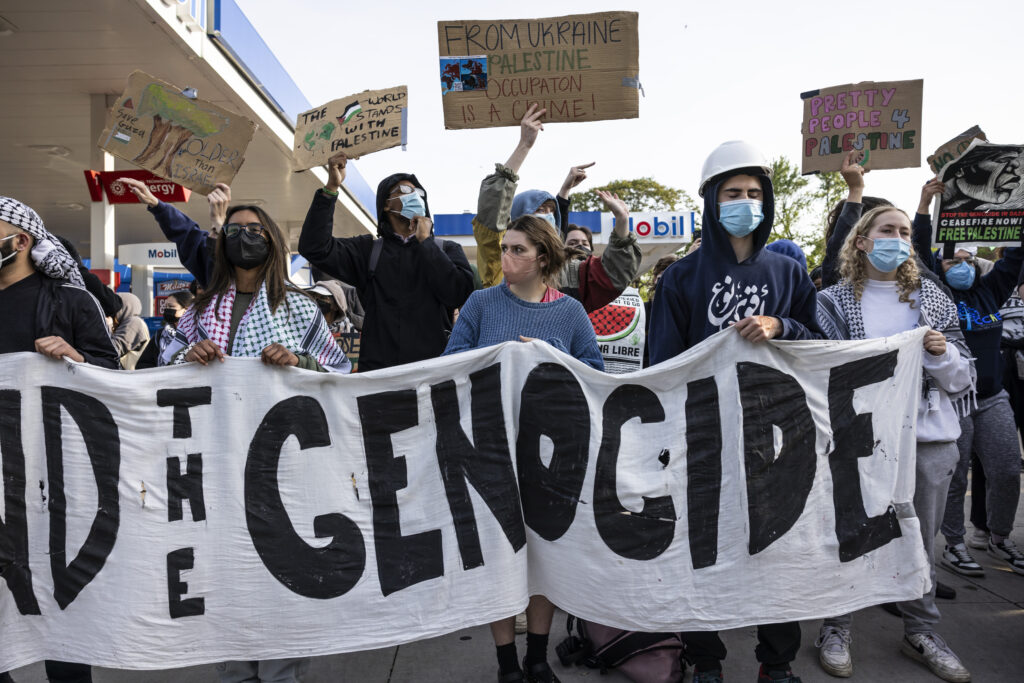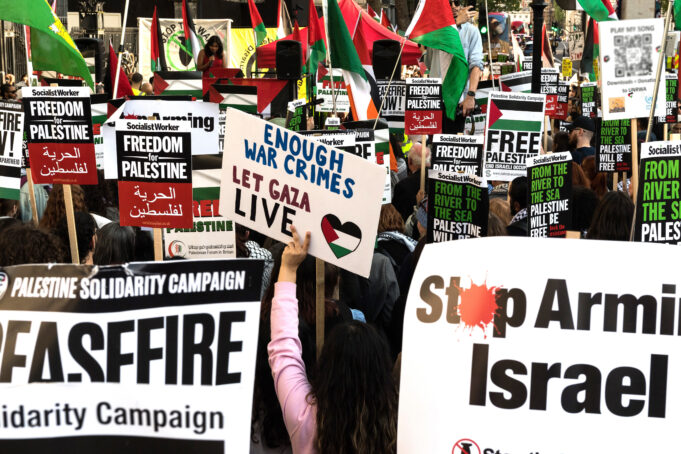The Gaza Strip has been a corridor of bloodshed and misery for Palestinians. For their brethren in the occupied West Bank, including East Jerusalem, it has been repressive domination by illegal settler-colonialists.
This is flanked by collective punishment, including targeted killings, destruction of civilian infrastructure like hospitals, houses of worship, and universities, in addition to obstruction of humanitarian aid and starvation as a war tactic. In simpler terms, it’s war crimes and genocide, argue observers and analysts.
As global disdain over the atrocities grows, several nations have filed Declarations of Intervention at the International Criminal Court of Justice (ICJ), which lends support to an active case brought by South Africa charging Israel with genocide.
Since then, Nicaragua, Colombia and Libya joined South Africa’s case against Israel while Egypt and Türkiye pledged to join the case. The lone country that filed in support of Israel was Germany.

Several other countries and global groups such as the Maldives, African Union, Organization of Islamic Cooperation, and League of Arab States have sent written requests to the Court requesting an “advisory opinion,” on the question of: “the legal consequences arising from the policies and practices of Israel in the Occupied Palestinian Territory, including East Jerusalem.”
“The submission … comes in light of the worsening severity and scope of Israeli attacks against Palestinian civilians in the Gaza Strip,” said a May 12 statement from the Ministry of Foreign Affairs of Egypt. South Africa filed its case in December 2023.
The ministry said Egypt acted because of Israel’s continuous perpetration of systematic practices such as “direct targeting of civilians,” the “destruction of infrastructure” and “pushing Palestinians to flee,” said the statement.
Within the same week that Egypt, Libya and Türkiye filed their intervention requests, 450,000 Palestinians fled Rafah in Southern Gaza, and 100,000 more fled northern Gaza as Israel launched new attacks. The displacements exacerbate an already dire situation in the enclave, where rights experts say there is nowhere else to go.
A Declaration of Intervention is a formal statement made by a country expressing its interest in a specific case before the court. Declarations allow countries not directly involved in a dispute to participate by presenting their views and legal arguments.
Located in The Hague, Netherlands, the International Court of Justice, also called the World Court, is the principal judicial organ of the United Nations.
An official of the South African government told journalists that it is significant that nations, and particularly Egypt, are joining the legal case against Israel, which generally receives unfettered impunity.
“Egypt joining is important; that you have a major power in the region joining our case is a signal that this institutionalized impunity is coming to an end, at least at a political level,” said Zane Dangor, South Africa’s director-general of the Department of International Relations and Cooperation.
He reasoned that Egypt’s involvement is equally important because it profiles the effort to use institutions of global governance to effect peace in the short and long term, by ending the occupation through negotiations.
“But for all of that to happen, the settler colonial activities and the genocidal actions that accompany that, must end,” explained Mr. Dangor, “and we are hoping that the institutions of global governance will this time be more explicit.” He was referring to a May 15 request by South Africa to the ICJ to clearly call for an end to the war.
The Honorable Minister Louis Farrakhan, the National Representative of the Most Honorable Elijah Muhammad and the Nation of Islam exhorted signatory nations to the Convention on the Prevention and Punishment of the Crime of Genocide to stand against the atrocity of the Palestinians.
“To all of you who have signed the Geneva Convention on Genocide, you have to stand, because it’s them today; it’s the Ukrainians, it’s others under powerful rulers,” the Minister said during his annual Saviours’ Day message, “What Does Allah The Great Mahdi And The Great Messiah, Have To Say About The War In The Middle East?” on Feb. 25.
The Muslim leader, echoing warnings of his teacher, the Honorable Elijah Muhammad, placed the urgency to act in the context of a time of a universal change, directed by the God of Justice. “The God that I represent? Oh, He wants you to know that He is come to set all the rulers down. He has come to take over the rule of America, of the world, as only God should do,” he said.

Israel must stop its military offensive
By Final Call presstime, the Court was hearing an emergency request by South Africa for additional provisional measures and a modification of previous measures imposed on Israel by the Court. In January, the ICJ ordered Israel to do everything possible to prevent genocide of the Palestinian people and ensure its military commits no acts constituting genocide.
Also, to “prevent and punish” the direct and public incitement of genocide and allow urgently needed humanitarian assistance into Gaza. Israel has violated all the provisional measures. During the hearing, South Africa said an order to completely end the war is necessary, arguing that the obliteration of Rafah means the end of Gaza.
The African nation argued that the provisional measures previously indicated by the Court are not capable of “fully addressing” the changed circumstances and new facts on which this request is founded.
“What we’re asking for is the Court to use its powers to stop this carnage,” said Mr. Dangor.
He argued what is required is for the Court to act unambiguously.
“We do not need the court to provide language that infers what Israel must do,” Mr. Dangor stated. “The court must explicitly state that Israel must stop its genocidal acts in Rafah … in Gaza and that includes an unambiguous call to cease its military operations in Rafah and the whole of Gaza.”
Israel’s conduct has been contemptuous of the Court and international law, South Africa’s lawyers told the Court in opening arguments, on May 16.
South Africa submits that this is “extremely urgent, necessary and essential” in light of the desperate circumstances facing Palestinians in Gaza, and specifically in Rafah, as a result of Israel’s continuing violations of the Genocide Convention and of this Court’s orders.
Egypt’s intervention is added pressure on Israel
Approaching the Court comes as Israel is unabashedly fortifying its offensive in Rafah, the last available area in Gaza where more than 1.5 million people displaced from other destroyed areas sought refuge.
Israel has defiantly ignored global rejection of its air and ground offense, which rights advocates argue will leave catastrophic death in its wake. Many argue carrying out the move—which Israel claims is needed to eradicate Hamas—is evidence of genocidal intent.
Along with condemning blatant infractions of the Genocide Convention and humanitarian law, the countries joining South Africa’s case have their reasons to do so. However, Egypt, say observers and analysts, should be observed more closely, as a nation that borders Israel and has years of deep ties with the Zionist State.
“The Egyptians are very worried about a massive fleeing of refugees into Egypt,” said Phyllis Bennis, director of the New Internationalism Project at the Institute for Policy Studies in Washington, D.C.
“That’s not going to happen as something Palestinians choose. But it’s not impossible that they could be forced into that—even physically, in Rafah,” she said.
Rafah is a small place populated by under 200,000 people on the edge of the Egyptian border. The war forced over 1.5 million people into the area who are being forced to leave again.
Israel forcing Palestinians to flee creates a circumstance where if they return North, there’s nothing left standing: no security, no water, no food, no medicine, and the hospitals have been destroyed with 80 percent of the buildings. “So, there’s not even, like shelter,” said Ms. Bennis.
“Whether people stay there or not, is a big question,” she added. “If they end up going back South, nobody knows what’s going to happen, because there is no place safe in all of Gaza,” said Ms. Bennis.
Egypt’s decision to submit an intervention to the ICJ came days after ceasefire talks in its capitol, Cairo, involving Egypt, Qatar, and the United States collapsed without a deal.
Although Egypt condemns Israel over the war, domestic unrest has placed Egypt in the hot seat over criticism of its handling of the humanitarian aid crises at the Gaza borders and its long relationship with Israel and the U.S.
“If the Israeli soldiers moved from the center of the town, towards the West, where more people have now fled, they could be physically pushing people up against the border fence with Egypt,” Ms. Bennis points out.
Egypt constructed a wall adjoining the border in case there was a mass exodus into Egypt or people pushed that way physically by the Israeli occupier forces.
“That’s the big thing Egypt has been afraid of … they don’t want Hamas people coming in, they don’t want other active militants coming in and they don’t want a big population of refugees that they then have to take care of. They don’t want any of that,” said Ms. Bennis.
In addition, “they don’t want to be accused of being what they have been all these years, which is in bed with the Israelis and the U.S.,” she added.
The Egyptian government largely banned public protests, and criticism of its ties with Israel is highly sensitive, reported the Associated Press. In early April, nearly 200 people rallied outside the building of the Journalist Syndicate in Cairo, waving the Palestinian flag and chanting slogans:
“What a disgrace! Egypt is helping the siege!” and “No to the Israeli Embassy! No to normalization.” They also raised banners reading “Open the Rafah crossing” and “Glory to the Palestinian resistance.”
Critics demanded Egypt overturn a 2007 agreement granting Israel the right to inspect convoys entering Gaza through the Rafah border crossing with Egypt. They say it allowed Israel to stifle the flow of humanitarian aid to Gaza’s 2.3 million Palestinians to a trickle.
Nations boldly pressing for accountability at the World Court further highlight that Israel and the U.S.—its enabling ally—stand as adversaries to colonized and oppressed people worldwide.
While carnage climbs toward 36,000 Palestinian deaths, the Zionist State has offered no clear path of shifting course, except threatening more carnage. As atrocities grow more horrific, Israel is becoming increasingly isolated among world nations.

The Muslim world should stand stronger
During his Saviours’ Day 2024 message the Honorable Minister Louis Farrakhan exhorted the Muslim world to stand up for the Palestinian people.
“Do you know that our Palestinian family, they don’t have strong friendship in the Muslim world,” said Minister Farrakhan. “Why is that? Are we Muslims? Prophet Muhammad, peace be upon him, said, ‘You are not a Muslim if you don’t want for your brother what you want for yourself,’” the Minister continued.
“Now, I know that the Muslim world feels the pain of the Palestinians, but they are afraid—afraid to stand. And from the rostrum, I am asking the Muslim world to stop fearing the consequence of standing,” said Minister Farrakhan.
“So, I am saying this openly to my brothers and sisters in Islam: You have to stand up against the genocide that is happening to our Palestinian family. They do not need platitudes; they don’t need cheap talk. They need the Muslim world to unite and say to Israel what you should say,” he exhorted.
It’s Israel and more
Taking the Zionist regime to task is bigger than Israel alone, analysts have told The Final Call in interviews.
“People need to be reminded that not only are we dealing with the assault right now in Gaza, but that the Israelis have used their military technology … weapons … training, to back repressive right-wing governments around the world,” Ajamu Baraka of Black Alliance For Peace, told The Final Call in a recent interview. He holds Israeli training of U.S. police forces directly responsible for the enhanced ability of those forces to repress and murder Black people in America.
Minister Farrakhan said what is happening in Palestine has become a test for the whole human family. Along with his teacher, the Most Honorable Elijah Muhammad, they forewarned the outcome of America and England depositing Israel in Palestine, causing Palestinians to be exiled.
“This injustice against the Arabs is now costing America the power and authority she once exercised in the East,” said the Honorable Elijah Muhammad in Chapter 40 of his crucial book, “The Fall of America”. “She is on her way out of the Near East,” he wrote, “This means bloodshed, and plenty of it.”












